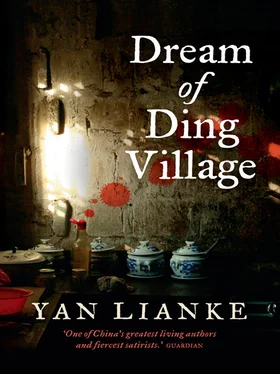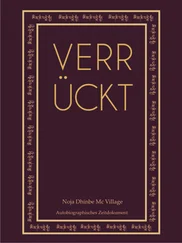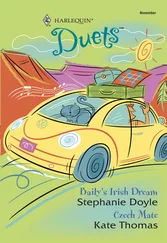‘You’ve got to do something, Professor. Once all the trees are gone, this village won’t be the same. Even if I don’t get my coffin, I don’t care. The only thing I want to do before I die is give my wife the red silk jacket I promised her. Anyway, what use is a coffin when you’re already dead? It’s not worth cutting down every tree in the village.’
2
Grandpa stepped out of the school gate, hesitated for a moment, and began walking towards the village. Darkness blanketed the plain like a vast black lake. There was no moon or stars, only vague, flickering shadows. The road to the village was swallowed up by the darkness, making it easy to stumble over its uneven surface or stray into the fields on either side. Grandpa had to tread carefully, using the patches and points of light in the distance to gauge his direction. As he drew closer to the village, the dark night air was filled with the fresh scent of sawdust. At first, it was just a faint whiff coming from the direction of the light. Then the smell seemed to coalesce into something more solid: waves of it sweeping in from the west end of the village, rolling in from the north and south, washing in from the alleyways to the east. With it came a tide of sound: the buzz of saws slicing timber, the thud of axes chopping trees, the babble of human conversation. It reminded Grandpa of years long ago, when everyone in the village had laboured day and night smelting steel in backyard furnaces or constructing massive irrigation works.
Quickening his step, Grandpa walked in the direction of the nearest lights. He found Ding Sanzi and his father working at the edge of their wheat field, digging up the roots of a large cottonwood tree. By the light of their lanterns, Grandpa could see that they’d dug an enormous room-sized pit, exposing the root system of the tree. Ding Sanzi’s father, stripped down to his underpants and covered in sweat, was using an axe to sever the last two connected roots, each the circumference of a large bowl. As he swung his axe, bits of dirt and wood flew through the air and stuck to his sweaty skin, making it look as if he’d been splattered in mud. Some distance away in the middle of the field, Ding Sanzi was trying to pull down the cottonwood by tugging on a heavy rope tied to a fork of the tree. Using all his strength, he yanked the rope, causing the tree to sway. There was a tremendous snapping and creaking of roots, and for a moment it seemed that the huge cottonwood might topple. When it refused to fall, Ding Sanzi shouted: ‘Dad . . come over here and help me pull!’
‘Wait until I chop this last root, then it’ll fall!’
As the older man raised his axe, Grandpa hurried over to block his way. ‘Hey, who said you could chop down this tree?’
His axe frozen in mid-swing, Sanzi’s father stared at Grandpa. After a moment, he laid down the axe and called to his son.
Sanzi came in from the field, took one look at Grandpa and snorted. Then he went over to a pile of clothes lying on the ground, took a folded letter from one of the pockets, and showed it to Grandpa.
The letter, written on Ding Village party committee stationery, was brief: ‘Ding Sanzi has permission to cut down the big cottonwood next to his field west of the village.’ Below this were the official village seal and the signatures of Jia Genzhu and Ding Yuejin.
Reading the letter in the light of the lanterns, Grandpa realized exactly what it meant: permission to fell the trees of Ding Village. He clutched the letter and stared at the two men, wondering whether or not he ought to stop them from cutting down the tree. As Grandpa was trying to make up his mind, Ding Sanzi snatched the letter from his hand and walked away. After he had folded the letter and put it back into the pocket of his clothes, he said calmly: ‘Your son Ding Hui sold off our coffins, and now you won’t even let us cut down a tree to make our own.’
Ding Sanzi, still strong despite being infected with the fever, walked back into his field, picked up the rope and continued trying to pull down the big cottonwood. Grandpa stood by helplessly for a while, then decided to go into the village and see what was happening there. He had not gone far when he heard a loud crack behind him, the splintering of wood. The sound reverberated through his chest, as if there were some acute ache in his heart. In that moment, Grandpa was once again consumed with the desire to strangle his eldest son with his bare hands. He could almost feel his palms sweating, and the ageing tendons in his hands flexing.
Grandpa entered the village and followed the glow of lanterns to a large willow tree. Plastered to the tree trunk was a notice nearly identical to the one Ding Sanzi had shown him. It was written on the same letterhead, and had the same two signatures and village seal. It read: ‘Jia Hongli has permission to cut down the old willow tree at the northwest corner of the intersection on the west end of the village.’
Grandpa scrutinized the paper pasted to the tree trunk as if it were an official government poster on a bulletin board. He was speechless. Apparently, the chopping down of trees was now perfectly legal and above-board. Grandpa stood in a daze, staring up at the lantern hanging from a branch of the willow tree. In the pool of light, he could make out Jia Hongli perched high in the tree, hacking at the branches. After pondering for a few seconds, Grandpa shouted up at him.
‘That looks dangerous, Hongli! Aren’t you afraid you’ll fall?’
Hongli paused and shouted back, ‘So what? I won’t live long, anyway.’
Grandpa tried appealing to Hongli’s father, who was standing below the tree. ‘Jia Jun, you’re not going to let your son risk his life over a tree, are you?’
The older man smiled and pointed to the notice stuck to the tree trunk. ‘It’s all right. We’ve got permission to cut it down, see?’
Grandpa shook his head and continued on his way. As he walked through the village, he saw that every tree large enough to be used as timber had been marked for demolition: there were notices pasted to every elm, honey locust, paulownia, toon and scholar tree he passed. In every lane and alleyway, in every corner of the village, he found people chopping down trees by the light of lanterns, kerosene lamps or candles. Some of the trees and exterior walls were strung with electric lights connected to long grey extension leads (known in the village as ‘rat-tail cords’) that snaked into nearby houses. Nearly every other house was brightly lit, turning Ding Village into a blaze of light, as dazzling as the daytime sun. It looked as if every tree in the village had been served with an execution order. The night air filled with the ceaseless clamour of chopping and sawing, and the pungent scent of fresh-cut wood mingled with tree sap.
Ding Village seemed revived: the residents prowled the streets with hatchets and saws, searching for the trees they’d been given permission to chop down. The sick villagers had, of course, been given the trees most suitable for making coffins: the willows, cottonwoods and paulownia. But because the trees were public property and everyone was entitled to his or her share, even the healthy villagers were allowed to chop down trees. They had been given the toons, chinaberries and scholar trees, whose timber was prone to rot and insects, and so ill-suited for making coffins. But they were fine for making furniture, beds and tables and chairs that could be given to sons and daughters as wedding gifts.
Each family in the village, with the exception of ours, had been given one tree to use as timber. So it was that on this spring night, the whole of Ding Village was hard at work chopping down trees and dragging them back to their homes.
Читать дальше












